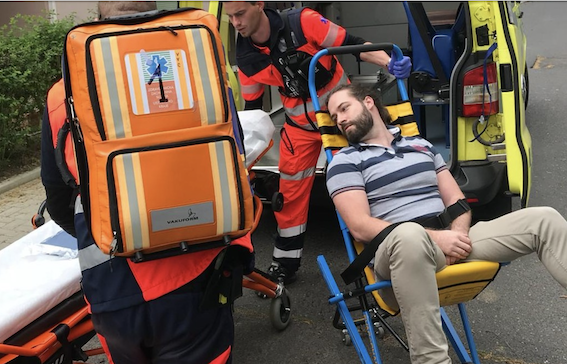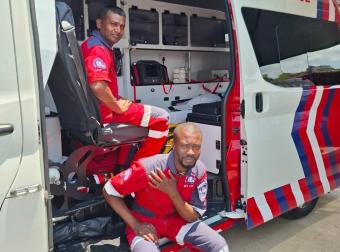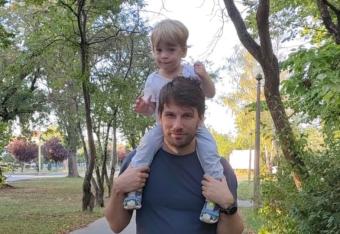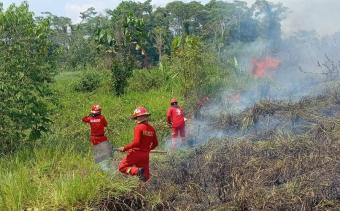Often the first to interact with a patient, EMS professionals have the massive responsibilities of diagnosing them, deciding where to take them and pre-notifying the hospital team as efficiently as possible.
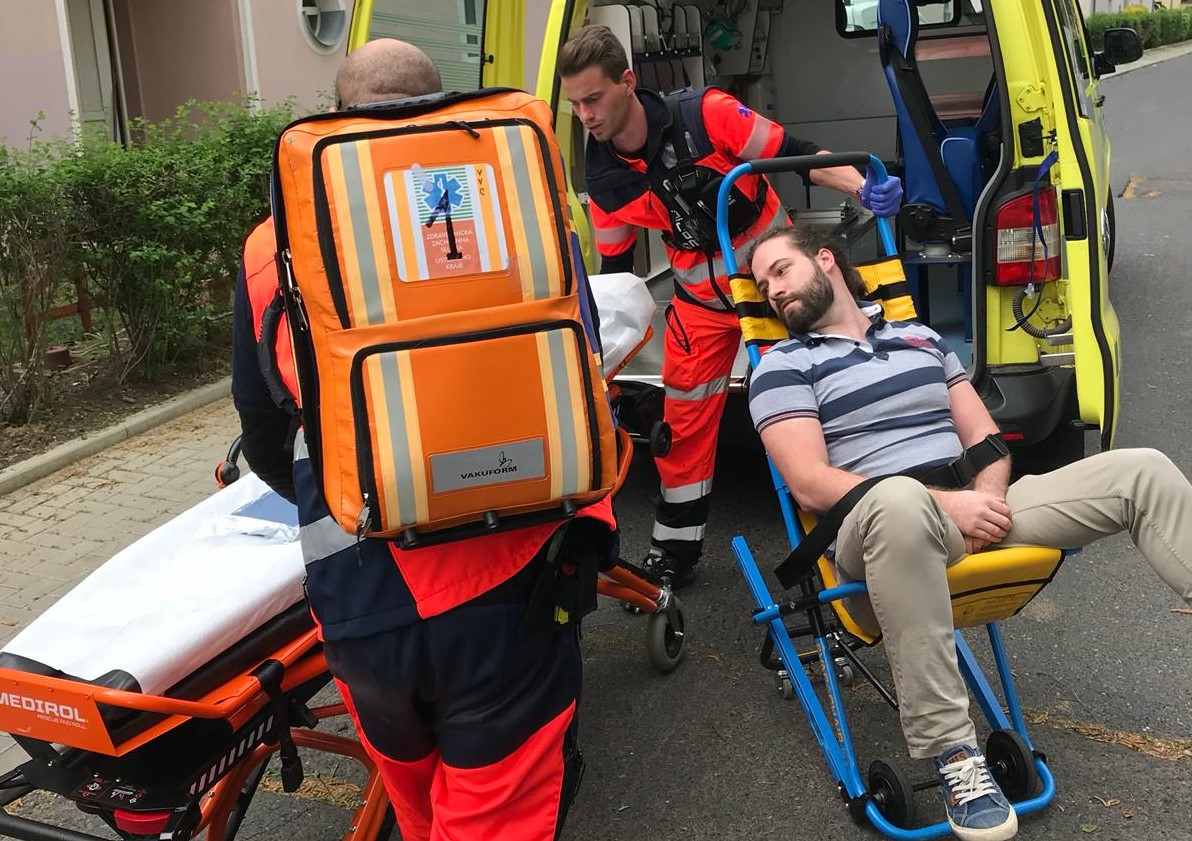
Their actions are crucial in determining the outcome of a stroke patient; having the relevant knowledge, standardized protocols and strong coordination are key to ensure that EMS can manage stroke patients quickly and efficiently.
Petr Jaššo, an EMS educational coordinator of the Moravian-Silesian region, was one of the first people in the country who not only understood this concept but also decided to act on it.
Every year since 2016, Petr Jaššo has been organizing up to three regional trainings on stroke patient management for EMS professionals. Each training was attended by 50 – 60 EMS and dispatch center professionals in the region and was
always led by a key opinion leader neurologist, an EMS expert and an Angels Consultant to provide various perspectives.
“Organized EMS trainings have brought a different perception of education in general for EMS professionals. Based on the structure (collaboration of speakers from EMS, hospital and research environment) and interactive form of the trainings, participants feel their direct involvement in the innovation of methodology, processes and therefore, they treat education differently which is directly followed by a very responsible approach to stroke care in the field. Since 2016 in collaboration with regional neurologists and the Angels Initiative we have successfully trained 350 EMS professionals including dispatch center professionals.” - Petr Jaššo
Petr Jaššo EMS educational coordinator of Moravian Silesian region and Robert Havalda, Angels Consultant in Czech Republic
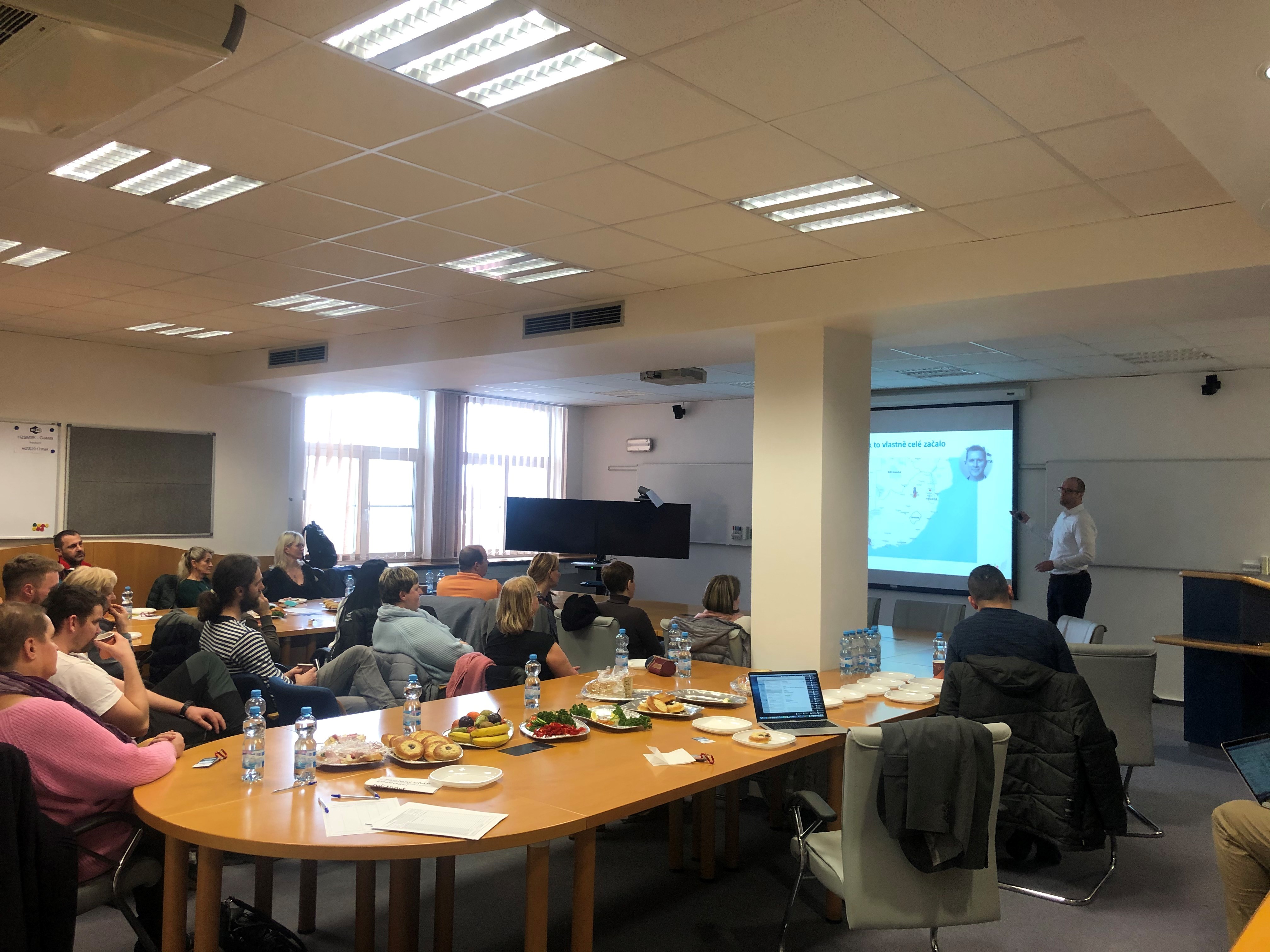 EMS training in Moravian Silesian region
EMS training in Moravian Silesian region
In addition to being educational, these regular trainings also became the perfect platform to discuss and explore new possibilities that could optimize care. Today, the EMS force in this region are armed with iPads with a software that combines geographical mapping with the FAST plus algorithm to recommend the right hospital based on current location and the patient’s risk of large vessel occlusion (LVO).
“In 2016, a new triage was introduced in the Moravian-Silesian Region (1.2 million of inhabitants) modifying the stroke patient pathway from a “drip and ship” to a “mothership” model, where EMS professionals are identifying potential LVO patients. This fact led to the necessity of implementation of a continuous EMS educational system based on regular webinars, knowledge testing and sharing of feedback between stroke centers and EMS regarding wrongly triaged patients. The triage modification significantly affected transportation times and led to a twofold increase of number of patients receiving mechanical thrombectomies.” - Dr. Michal Bar, Chief of Neurological Clinic of University Hospital Ostrava
„We compared the effectiveness of stroke care in the period before the implementation of the FAST plus protocol and after the first year of use in the Moravian-Silesian Region. During this period, we observed an increase in mechanical thrombectomies (MT) by 61% and 40% reduction in secondary transport by EMS. Moreover, we have observed a shortening of onset-to-groin time by 43 minutes (26%) and a shortening of onset-to-needle time by 38 minutes (40%).” - Dr. Daniel Vaclavík, Chief of neurology in Vítkovická nemocnice
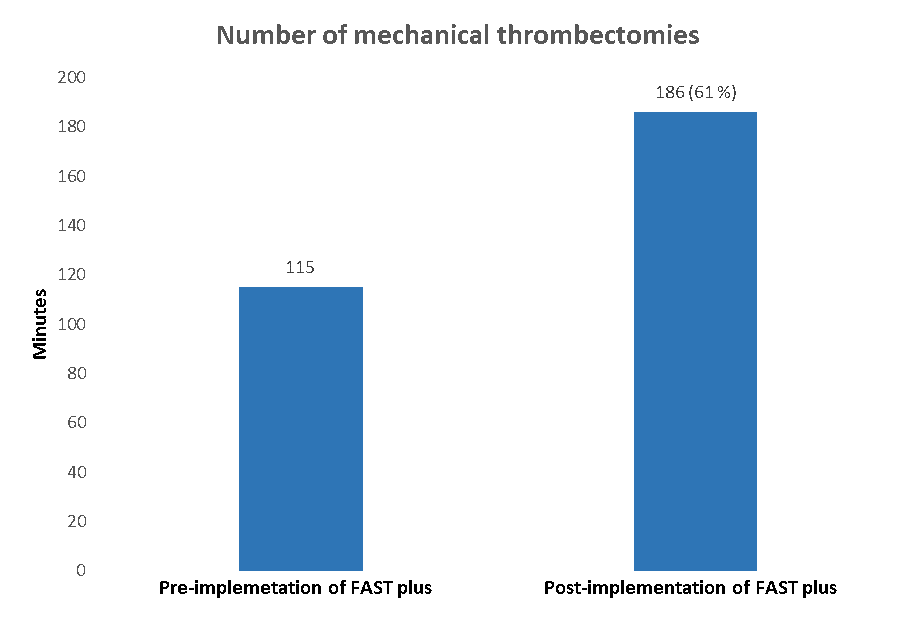
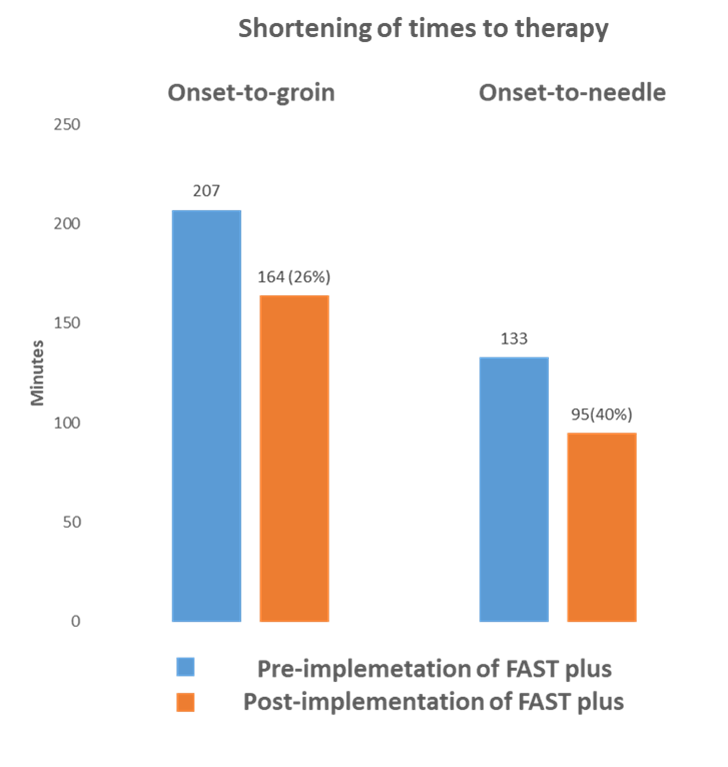
The implementation of the FAST plus protocol created such a dramatic impact, there is now a plan to implement this nationally. Other regions have followed suit in having their own comprehensive meetings on a regular basis, also involving their regional EMS, Comprehensive Centers and stroke hospitals.
One of these regional comprehensive meeting happened rather recently for two tightly interconnected regions: Prague and Central Bohemian region. During the meeting, 26 Chiefs of Neurology and Stroke Units from all 12 regional hospitals created an action plan to improve pre-hospital stroke care management. This was followed by another meeting of KOLs with regional representatives of EMS Central Bohemia where the action plan was negotiated, aligned and agreed upon by both sides.
The action plan consists of:
• The implementation of FAST plus stroke protocol for triage optimization
• Structured prenotification call to neurologist via the stroke phone
• Plan of alternative centers for mechanical thrombectomy procedures if the regular hospital is at overcapacity
• Secondary transfers
• A mailing list and communication channel for mutual feedback to preserve the protocol’s quality
• Improvement of the educational stroke program for EMS professionals by using webinar tools
“One of the key elements during the stroke care organization is to have well-established checklists followed by both: EMS and stroke hospitals. However, in daily practice, we are facing various situations beyond the scope. Therefore, it is crucial to organize meetings in person with all involved in the stroke care, like EMS, in order to find solutions for such non-standard situations. In addition, these meetings allow to create personal bonds that are helping us solve issues more effectively in the future." - Dr. Martin Šrámek, Chief of Comprehensive Stroke Center in Military University Hospital in Prague
One crucial element in this progress has been the involvement of EMS representatives in the Angels Steering Committee, which tends to be dominated by physicians. When we invited Petr Jaššo to attend the Czech Committee meeting for the first time, he brought such valuable perspective and refreshing ideas that everyone agreed he should be made an official committee member.
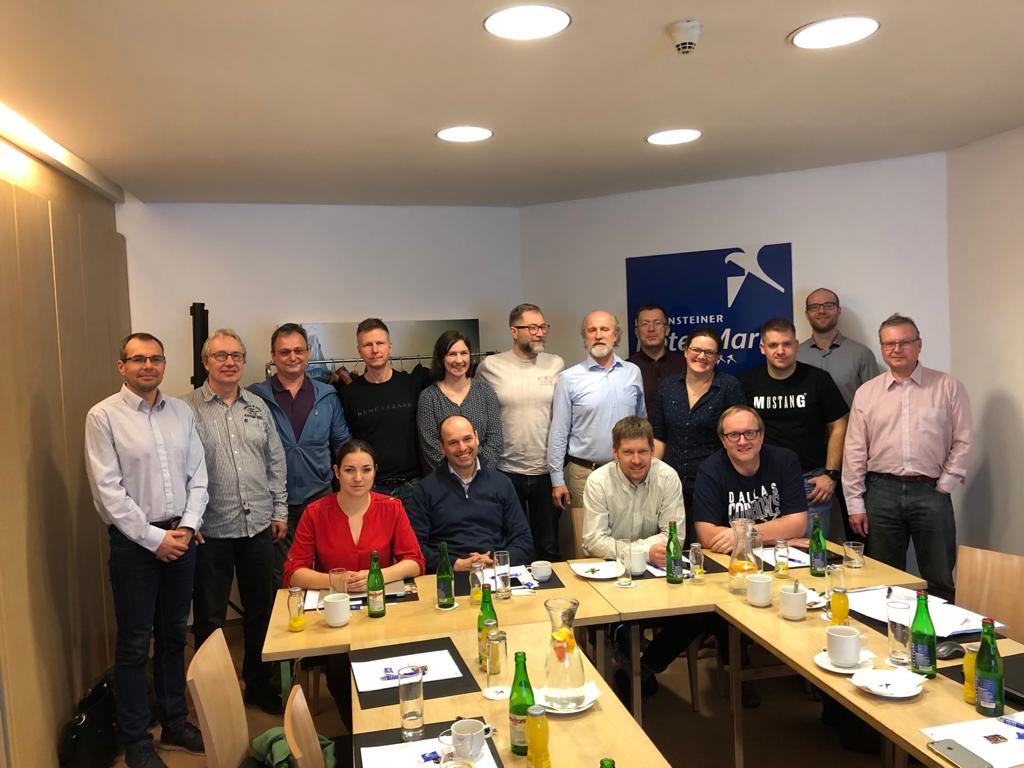
Czech Angels Steering Committee
Not only has this inclusive multidisciplinary approach helped them come up with innovative solutions for stroke patients in the country, it has also opened influential doors that can bring further major improvements at a national level. Dr. Marek Slabý, the president of the National Association of EMS, is the most recent addition to the Angels Steering Committee. His presence in this group means that the national EMS and neurological society are now able to fully align their national stroke guidelines, thereby ensuring better and standardized coordination between ambulance and hospitals.
